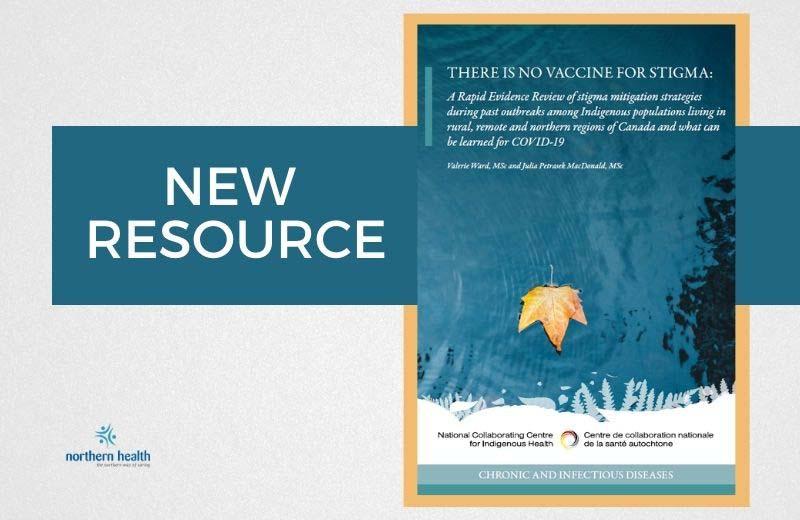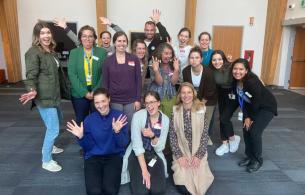Public health responses to the COVID-19 pandemic have the potential to either generate or prevent stigma – something that has the potential to lead to discrimination, which can negatively impact health outcomes for Indigenous Peoples.
A new resource is now available from the National Collaborating Centre for Indigenous Health (NCCIH) and Northern Health that focuses on evidence-based recommendations to counteract COVID-19 related stigma in Indigenous, rural, remote, and Northern communities in Canada[1].
This review was collaboratively developed with expert guidance from members of the COVID-19 Public Health Working Group on Remote and Isolated Communities. This group is made up of several member organizations including:
- Assembly of First Nations
- Council of Yukon First Nations
- Dene Nation
- Department of National Defence
- First Nations Health Authority
- Government of Newfoundland and Labrador
- Government of Northwest Territories
- Government of Nunavut
- Government of Yukon
- Indigenous Services Canada
- Inuit and Tapiriit Kanatami[2]
- Métis National Council
- National Collaborating Centre for Indigenous Health
- Northwest Territory Métis Nation
- Nunavik Regional Board of Health and Social Services
- Public Health Agency of Canada
- Saskatchewan Health Authority
Their mandate was to serve as a platform to develop evidence-based recommendations and material on how to best counteract COVID-19 related stigma.
The report identifies and analyzes best practices to address stigma that have been used by Indigenous Peoples and communities during previous epidemics, pandemics, and infectious disease outbreaks. It also highlights gaps in knowledge and opportunities for future research.
The research was first conducted in May 2020 and repeated in October 2020 to include the most recent available evidence. The authors identified, gathered, and analyzed a total of 179 articles, then synthesized findings from 25 of those articles.
Six broad themes were identified from the literature review. These themes included:
- Pathogen factors
- Fear, anxiety, and misinformation
- Stigmatised identities
- Structural and systemic drivers
- Culture and community
- Public health and media
Stigma mitigation strategies identified in the literature included: providing education and information to address fear and anxiety, sharing personal stories to tackle stigma, and implementing systemic and structural plans to mitigate racism and stigma within workplaces (Ward & MacDonald, 2021).
There is a lack of literature in relation to stigma, COVID-19, and Indigenous communities. However, there is much to be learned from the available evidence related to other infectious diseases and prior epidemics including the drivers and impacts of stigma. Eight broad recommendations are discussed including: developing context specific, strengths-based and resilience focused strategies; recognition of Indigenous People’s sovereign rights; and developing partnered approaches to create culturally specific strategies to mitigate stigma.
The full report is available on the NCCIH website.
[1] Ward, V. and MacDonald, J. (2021). There is no vaccine for stigma: A Rapid Evidence Review of stigma mitigation strategies during past outbreaks among Indigenous populations living in rural, remote and northern regions of Canada and what can be learned for COVID-19. Prince George, BC: National Collaborating Centre for Indigenous Health.
[2] While Inuit and Tapirit Kanatami are part of the COVID-19 Public Health Working Group on Remote and Isolated Communities, they do not endorse the document.















Comments